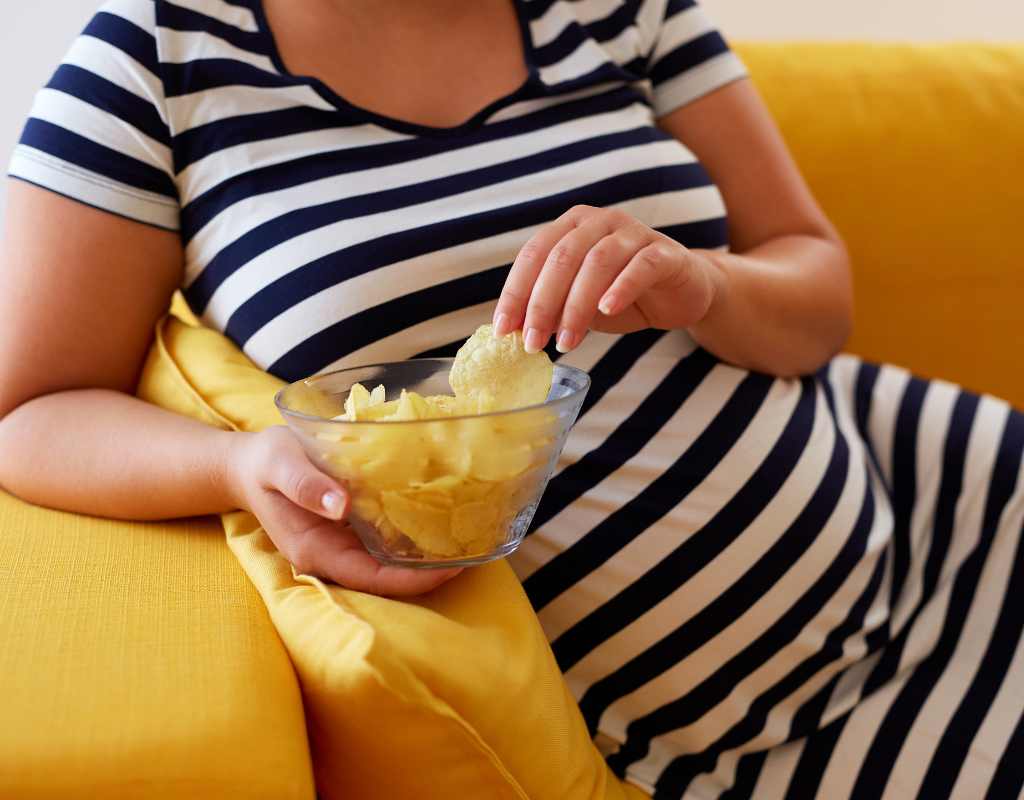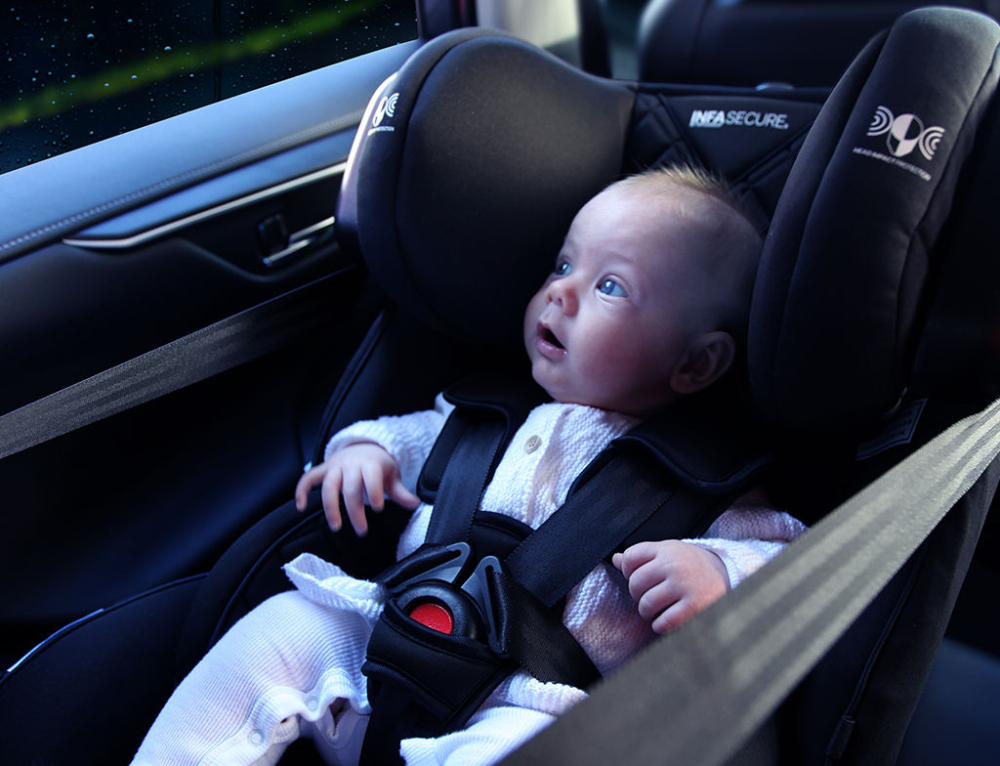Research has suggested that mothers who eat ‘junk food’ while pregnant may have already programmed their babies to be addicted to a high-fat, high-sugar diet by the time they are weaned.
The 2013 research, which hails from the University of Adelaide, is led by Dr Beverly Mühlhäusler, Postdoctoral Fellow in the University of Adelaide’s FOODplus Research Centre, who says the groundbreaking research is the first study to show the effects of maternal junk food consumption at such an early stage in our offspring’s lives.
So, how does it work?
Dr Mühlhäusler explains consumption of fats and sugars produces opioids by the body as a reward response. These opioids stimulate the production of the ‘feel good’ hormone dopamine, which produces a good feeling.
“We found that the opioid signalling pathway (the reward pathway) in these offspring was less sensitive than those whose mothers were eating a standard diet,” Dr Mühlhäusler says.
Essentially, children born to women with a diet rich in high-fat, high-sugar (junk) foods would need to eat higher amounts of these foods to get the same feel-good feeling. This may encourage overeating and an increased preference for junk foods.
“In the same way that someone addicted to opioid drugs has to consume more of the drug over time to achieve the same ‘high’, continually producing excess opioids by eating too much junk food results in the need to consume more foods full of fat and sugar to get the same pleasurable sensation,” says Dr Mühlhäusler.
Is it a done deal?
Although the research shows many of the long-term health problems associated with maternal junk food diets can be avoided if offspring carefully follow a healthy diet after weaning, Dr Mühlhäusler says they are always going to have a predisposition for overconsumption of junk food – and obesity, which will make it more difficult to maintain a healthy body weight throughout their lifetime.
While researchers are studying what can be done to reverse these outcomes, current findings suggest the alterations to the opioid receptors are permanent.
“The take-home message for women is that eating large amounts of junk food during pregnancy and while breastfeeding will have long-term consequences for their child’s preference for these foods, which will ultimately have negative effects on their health,” Dr Mühlhäusler says.
Tips for beating a junk food craving
Rather than simply leaving those of us that do crave and consume a lot of junk food during pregnancy to feel the ever-present ‘mummy guilt’, here are a few ways you can work with, rather than against, yourself.
- Portion size: Don’t deprive yourself of what you love entirely, but keep it to a few times per week, in a sensible, snack-sized serving (or share your serving).
- (IN)convenience: Make junk food something you have to get yourself, and that isn’t stocked at home – sometimes the act of having to think it through and get up and go and get it is enough for the craving to pass.
- Stock up on good stuff: Conversely, keep a stock of your favourite fruits and veggies, or other favourite healthy foods on hand to snack on.
- Substitute! Try substitution and get creative in the kitchen – I love a good hot chip pig out, but I have found a par-boiled potato chopped into chips and baked in the oven does a good job of satisfying the craving. Even the greasiest Mexican meal can be turned into a healthy option with a bit of ingenuity – and it’s great practice for when the kids come along!
This article was written for Kidspot NZ.
Sources include: University of Adelaide: News | Maternal diet sets up junk food addiction in babies







Leave A Comment
You must be logged in to post a comment.